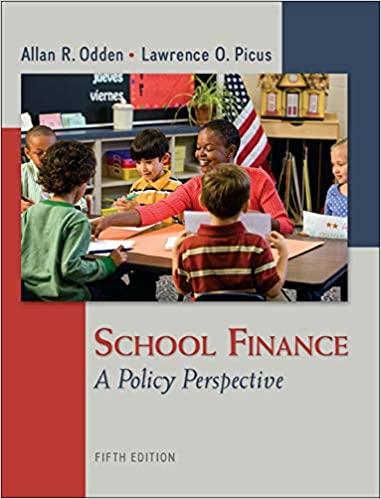Question
Rather then paying rent, Jeff and Sharon want to purchase, with cash, a $95,000 town home for their son Brett to live in while attending
Rather then paying rent, Jeff and Sharon want to purchase, with cash, a $95,000 town home for their son Brett to live in while attending college. They expect the home to increase in value at a rate of 5% annually. The opportunity cost for the cash purchase is 7% (discount rate). They believe Brett can find roommates to pay rent toward the purchase that will produce the following net after-tax cash flows:
Year 1 $300 Year 2 $300 Year 3 $400 Year 4 $500
What will the value of the home be if sold at the end of the fourth year?
| $124,525 |
| $115,473 |
| $132,152 |
| $99,750 |
Rather then paying rent, Jeff and Sharon want to purchase, with cash, a $95,000 town home for their son Brett to live in while attending college. They expect the home to increase in value at a rate of 5% annually. The opportunity cost for the cash purchase is 7% (discount rate). They believe Brett can find roommates to pay rent toward the purchase that will produce the following net after-tax cash flows:
Year 1 $300 Year 2 $300 Year 3 $400 Year 4 $500
What is the NPV of the investment at the end of the fourth year?
| -$5,656 |
| $3,894 |
| -$3,962 |
| $2,967 |
Rather then paying rent, Jeff and Sharon want to purchase, with cash, a $95,000 town home for their son Brett to live in while attending college. They expect the home to increase in value at a rate of 5% annually. The opportunity cost for the cash purchase is 7% (discount rate). They believe Brett can find roommates to pay rent toward the purchase that will produce the following net after-tax cash flows:
Year 1 $300 Year 2 $300 Year 3 $400 Year 4 $500
Is this a good investment for Jeff and Sharon from a purely financial standpoint?
| Yes, because the NPV implies that the rate of return on future cash flows is greater then the opportunity cost used to discount future cash flows |
| No, because the NPV implies that the rate of return on future cash flows is less then the opportunity cost used to discount future cash flows |
Step by Step Solution
There are 3 Steps involved in it
Step: 1

Get Instant Access to Expert-Tailored Solutions
See step-by-step solutions with expert insights and AI powered tools for academic success
Step: 2

Step: 3

Ace Your Homework with AI
Get the answers you need in no time with our AI-driven, step-by-step assistance
Get Started


